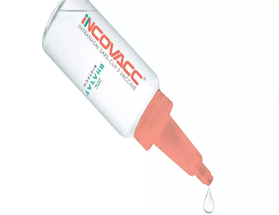India gets its first nasal COVID vaccine
- Posted By
10Pointer
- Categories
Science & Technology
- Published
7th Sep, 2022
-
Context
Bharat Biotech’s COVID-19 recombinant nasal vaccine has been approved by the Ministry of Health’s Central Drugs Standard Control Organisation for primary immunisation of those aged 18 years and above in emergency situations.

What is a nasal vaccine?
- Vaccines are usually given through different routes, with the most common being injectable shots delivered into the muscles (intramuscular) or the tissue just between the skin and the muscles (subcutaneous).
- There are also other routes of delivery, especially in some vaccines for infants, that include administering the liquid solution orally instead of injecting.
- In the intranasal route, the vaccine is sprayed into the nostrils and inhaled.
- Many viruses, including the coronavirus, enter the body through mucosa — wet, squishy tissues that line the nose, mouth, lungs and digestive tract — triggering a unique immune response from cells and molecules there.
- An intranasal vaccine can act against the virus from the time it tries to break the body’s barrier.
- Instead, intramuscular vaccines generally fail at eliciting this mucosal response, as they rely on immune cells mobilised from elsewhere in the body flocking to the site of infection.
Importance
- helpful in overcoming potential difficulties with mass vaccination
- reduce the cost by doing away with the need for needles and syringes
- cut down on the dependence on various trained personnel to administer the vaccine
- simple to use and can be self-administered in pandemics and outbreaks
